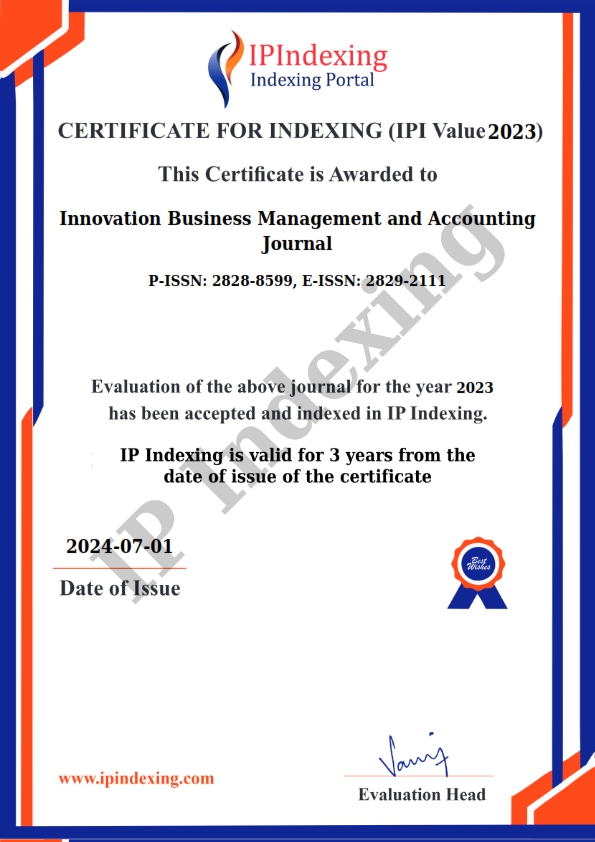The Effect of Corruption in the Mining Sector on State and Environmental Losses (Case Study of PT Timah Tbk)
DOI:
https://doi.org/10.56070/ibmaj.2024.051Keywords:
Corruption, Illegal Mining, Money Laundering, State Losses, TinAbstract
The purpose of this research is to determine the problem of the influence of PT Timah corruption on state and environmental losses. The research method used in this research is the literature method, by obtaining research from various sources, with steps such as determining a problem or describing subtopics , looking for sources from previous research, and rearranged it so that it becomes new research. The results of this research show corruption cases involving PT. Timah (Tbk) has shown how illegal and unethical practices in natural resource management can cause huge losses to the country and society. Corruption that occurred at PT. Timah (Tbk) not only resulted in financial losses of 271 trillion rupiah, but also caused significant damage to the environment. This highlights the urgent need for stricter governance, transparency, and accountability in the management of natural resources to prevent further harm to the environment and economic stability.
Downloads
References
Aravinda, H. T. (2022). The Effect of Iron Ore Mining on Environment & It’s Regulation in India. Nitya Publications.
Basabose, J.d. (2019). The Concept of Corruption. In: Anti-corruption Education and Peacebuilding . Springer, Cham. https://doi.org/10.1007/978-3-030-03365-1_2
Blackburn, K., Bose, N., & Emranul Haque, M. (2006). The incidence and persistence of corruption in economic development. Journal of Economic Dynamics and Control, 30(12), 2447–2467. https://doi.org/https://doi.org/10.1016/j.jedc.2005.07.007
Carvalho, F. P. (2017). Mining industry and sustainable development: time for change. Food and Energy security, 6(2), 61-77. https://doi.org/10.1002/fes3.109
Dhar, P. (2016). Money laundering concept & overview. South Asian Journal of Marketing & Management Research, 6(11), 34-53. Dhar, P. (2016). Money laundering concept & overview. South Asian Journal of Marketing & Management Research, 6(11), 34-53. https://doi.org/10.5958/2249-877X.2016.00032.1
Eko, & Surti. (2024, May 27). 8 Negara Penghasil Timah Terbesar di Dunia. Fortune Indonesia.
Hartono, B., & Hasan, Z. (2021). Implementasi Pertanggung Jawaban Pelaku Tindak Pidana Korupsi Dalam Penyalah Gunaan Anggaran Pendahuluan Dan Belanja Kampung (Apbk) Yang Dilakukan Oleh Oknum Mantan Kepala Kampung Menanga Jaya (Studi Kasus Nomor: 13/Pid. Sus-Tpk/2020/Pn. Tjk). IBLAM Law Review, 1(3), 1-21.
Ivanyna, M., Moumouras, A., & Rangazas, P. (2016). The Culture Of Corruption, Tax Evasion, And Economic Growth. Economic Inquiry, 54(1), 520–542. https://doi.org/https://doi.org/10.1111/ecin.12228
Mauro. (1995). Corruption and growth. Quarterly Journal of Economics, 110(3), 681–712. https://doi.org/10.2307/2946696
Prabowo, M. A. (2021, May 25). Akuntansi Lingkungan Dan Agenda Pemberantasan Korupsi. Republik Merdeka, RMOL.ID.
Primayogha, E., Tamara, S., & Aulia, Y. (2024, April 1). Kasus Korupsi PT Timah: Potret Buruk Tata Kelola Sektor Ekstraktif. Indonesia Corruption Watch.
Rusdianti, I. S., Irmadariyani, R., & Kustono, A. S. (2022). E-Finance: Mitigation of Fraud Tendency in Indonesia. IJEBD International Journal Of Entrepreneurship And Business Development, 5(3), 581-589. https://doi.org/10.29138/ijebd.v5i3.1857
Salim, H. (2006). Hukum pertambangan di Indonesia. Raja Grafindo Persada.
Siregar, D. (2020). Pemanfaatan Sumber Daya Alam Hayati Sebagai Objek Wisata Dan Tingkat Kesejahteraan Masyarakat Sekitar Lokasi Wisata. Jurnal Economic And Currency Study, 3(2).
Tanzi, V., & Davoodi, H. (1998). Corruption, Public Investment, and Growth. In H. Shibata & T. Ihori (Eds.), The Welfare State, Public Investment, and Growth (pp. 41–60). Springer Japan.
Waller, A. (2023). 17. Tin mining, are there unforeseen radiation risks?. Planetary Health and Bioethics, 311.
Williams, A., & Dupuy, K. (2017). Deciding over nature: Corruption and environmental impact assessments. Environmental Impact Assessment Review, 65, 118-124. https://doi.org/10.1016/j.eiar.2017.05.002
Worlanyo, A. S., & Jiangfeng, L. (2021). Evaluating the environmental and economic impact of mining for post-mined land restoration and land-use: A review. Journal of Environmental Management, 279, 111623. https://doi.org/10.1016/j.jenvman.2020.111623
Zed, M. (2008). Metode Penelitian Pustaka. Yayasan Pustaka Obor Indonesia.
Downloads
Published
How to Cite
Issue
Section
License
Copyright (c) 2024 Muhammad Aras Prabowo, Dika Dermawan, Fitria Auldri Desiana, Fira Mubayyinah

This work is licensed under a Creative Commons Attribution-ShareAlike 4.0 International License.



